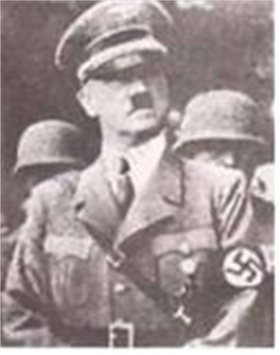 Short Answer Type
Short Answer Type Long Answer Type
Long Answer TypeThe early Congressmen were liberal in their views and programmes. This led to the rise of
radical nationalists who demanded more forceful action against the British. In this context,
discuss the following:
(a) Reasons why the early Congressmen were called ‘Moderates’.
(b) How did the Moderates differ from the Assertive Nationalists in realising their objectives?
(c) How did Tilak bring a new wave in Indian politics that was distinct from the early Congressmen?
(a) The Early Congressmen were called moderates due to the following reasons:
i. The early nationalists had deep faith in the British sense of justice and fairplay despite all material facts indicating otherwise.
ii. They worked within the framework of the government and did not use any extra-Constitutional means in order to attain their objectives.
iii. The Early nationalists believed in the concept of loyalty to the British Crown. The demand for Constitutional reforms was made in a mendicant manner through the use of petitions, meetings and distribution of pamphlets and leaflets.
(b) The moderates differed from the radical nationalists in the realisation of their objectives. This becomes clear from the fact that the moderates were asking for Dominion Status, i.e. self-government under the British crown whereas the radicals were demanding purna swaraj or complete independence. Moderates believed that Indians were not fit to rule. They considered British rule a gift for India.
(c) Tilak brought a new wave in Indian politics through his new, radical political beliefs, his scathing criticisms of the British government and in the manner in which he attempted to mobilize the masses and assimilate them into the mainstream of the national movement.
i.Tilak’s three pronged approach to independence was ‘swaraj’, ‘swadeshi’ and‘boycott’.
ii. Through his weeklies – ‘Kesari’ and ‘Mahratta’ – he regularly launched offensives against the government in a language that roused the masses.
iii. In order to revive the Indians’ pride in their ancient civilisation and culture, he began the celebration of the Ganpati festival and Shivjayanti on a large scale. To this effect, he also organised akharas and lathi clubs for the youths.
iv. In the year 1896 he led a ‘no rent campaign’ and asked the peasants not to pay land revenue to the government.
The reasons for the formation of the Muslim League were many. In this context, explain:
(a) Any three factors that led to the formation of the League in India.
(b) Any three demands made by the Muslim Deputation in 1906 to the Viceroy Lord Minto.
(c) The aims and objectives of the Muslim League.
The Congress Working Committee passed the famous ‘Quit India Resolution’ at Wardha in July 1942. With reference to this, answer the following questions:
(a) What were the reasons behind the passing of this resolution?
(b) What was the British government’s reaction to the Quit India Movement?
(c) What was the impact and significance of this movement?

Study the picture given below and answer the questions that follow:
(a) Identify the leader in the picture.
(b) State any four factors that led to the rise of dictatorships in Germany and Italy.
(c) Why did he invade Poland? State two similarities between Fascism and Nazism.
The United Nations Organisation was established to maintain peace and ‘promote social progress and better standards of life in larger freedom.’ With reference to this, explain the following:
(a) The composition of the Security Council.
(b) The functions of the Security Council with related to maintaining World Peace.
(c) The role of UNESCO in the development of Science and Technology.
